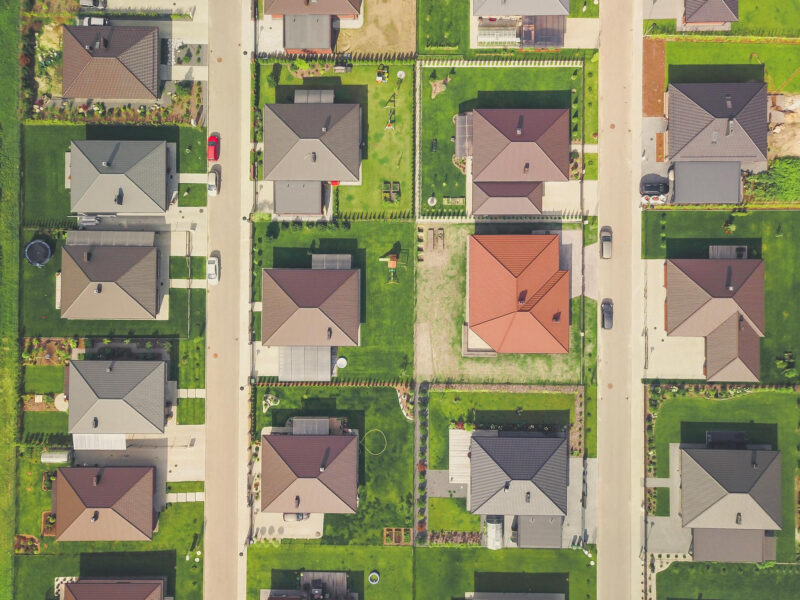As blockchain technology continues to improve, stablecoins can be important tools in redrawing the way properties are settled in Australia. Real-time settlement capability attracts more notice from both the real estate and finance sectors.
With other payment methods frequently delaying property deals, Australian real estate industry players are considering whether digital products can hasten the deal. Stablecoins, with their guarantees of settled payment instantly, are not going unnoticed. As Australia is putting digital finance infrastructure to the test, real estate corporations can benefit from blockchain implementation soon.
As you enter global markets, cryptocurrency is already soothing points of cross-border trading, and blockchain discussions in real estate transactions are increasing as well. Pairs such as ETH to AUD can be used to describe additional fluidity between crypto finance systems and conventional systems, with the ease with which digital currencies can be valued against national currencies. Increased association can take a significant brokerage for markets such as real estate, which have stringent demands for secure, trackable exchanges of finances.

Fast Settlements of Residential Property Transactions
Real estate settlements, particularly in Australia’s capitals such as Sydney and Melbourne, involve high-value settlements that would take days to settle. Such taking of time would normally be due to the various layers of compliance, escrow facilitations, as well as banking clearances that are necessitated under current regimes. In contrast, stablecoins, which are fiat-currency-pegged cryptocurrencies, offer almost immediate transaction functionality, including for high values.
For developers, investors and agents, latencies can be more than a waste of time. Settlement date uncertainties sometimes affect investment confidence, particularly for international buyers who rely on real-time conversion and fund transfer. Because blockchain-driven stablecoins can provide fast, trackable payment with self-enforcing recording with smart contracts, they can be a highly appealing alternative to slow, fragmented conventional systems.
Why Stablecoins Are a Threat to Traditional Banking
Another of the unique features of stablecoins is that they are clear. Through distributed ledger technology, each transaction is time-stamped in real time, reducing requirements for settlement after-the-fact reconciliation and administrative complexity. Stablecoins allow for programmable money, money that can automate terms.
A land sale, for instance, can be integrated into a smart contract. If agreed-upon terms are met—e.g., approval of an inspection or validation of an identity—the funds get disbursed instantly. Such features are far ahead of what is possible with traditional banking systems using clearinghouses and human approvals.

Note: In countries like Australia, where property is a cornerstone of the economy, streamlining transactions can increase turnover and confidence. While volatility is often posited as a risk in crypto, stablecoins eliminate this problem with a fixed value, providing predictability without compromising velocity.

Australia’s Readiness for Blockchain Usage in the Property Market
Australia is a relatively adventurous country in exploring digital finance, as can be seen from the Reserve Bank, which undertook experiments with a central bank digital currency (CBDC) as well as with blockchain applications. While CBDCs are distinct from privately developed stablecoins, national debate regarding CBDCs paves the way for further acceptance of blockchain.

Note: Digitisation is happening in the real estate sector as well. Smart contracts have been tested with rental agreements, and some corporations are researching blockchain for land registry, and incorporating stablecoins into this equation makes sense. It’s secure and efficient, but it also allows corporations to compete in an increasingly digitizing global real estate marketplace.
Currently, no major Australian real estate firm has announced publicly its strategy of integrating a stablecoin, although discussions are going on privately between fintech alliances, particularly in high-property-turnover cities with international clients.
Regulatory Issues and Market Sentiment
Yes, with innovations comes the need for proper regulatory frameworks. Property transfers involve a multitude of government agencies, laws, as well as fiscal requirements for compliance. Stablecoins should be broadly adopted, with definitions of digital payment tightened as well as asset settlement.
Australian financial regulators have started conversations about the nature of crypto assets, encompassing a class of crypto assets, namely stablecoins. Initiatives of this kind can provide the legal clarity necessary for property companies to integrate them into their business models.
Consumer trust is also required. Stablecoins would have to establish long-term price stability as well as operational safety. Unlike speculative tokens, they would likely require verification with audited reserve holdings or government regulation to take hold in the traditional universe of real estate finance. As general exposure to crypto terminology increases, resistance may yet dwindle.

Can Stablecoins Reshape Australian Property Transactions?
There is a growing alignment between the real estate sector's needs and the promise of blockchain-based currencies. As cross-border exchanges become more global and frictionless payment requirements increase, the role of stablecoins in property transactions can grow organically.
Both buyers and sellers are attracted to fewer delays, computerised verification of compliance, as well as lower expenses. Technologically sophisticated real estate firms can next implement pilot projects to test settlements with stablecoins in controlled environments. Whilst it is too early to predict widespread usage, the direction is clear. Stablecoins are not velocity-centric; they are about predictability, automation and cross-border efficiency that is in line with where real estate is headed in the contemporary day. Australian digital finance infrastructure is being developed, and real estate can be front and centre of broad crypto usability.













